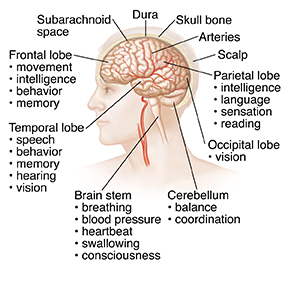Early on they discovered that the bodys primary thirst center in the brain is the hypothalamus a deep structure that also regulates body temperature sleep and appetite. Brain mechanisms involved in hunger and thirst would most likely be studied by a.

Areas Of The Brain Involved In Hunger Psychology Info
Which part of the brain is responsible for hunger thirst sex body temperature and endocrine secretion.

. For gastric stretch and. It may be possible through food reformulation to produce foods that not only suppress appetite but are also desirable to eat in order to influence behaviour change and facilitate healthier food choices. Scientists are still trying to uncover how this process works but research over the past several decades indicates that a highly specialized part of the brain called the lamina terminalis is responsible for guiding many of these thirst responses Figure 1.
Brain mechanisms involved in hunger and thirst would most likely be studied by a. Brain mechanisms involved in hunger and thirst would most likely be studied by a Apersonality theorist. The foods passage through the gastrointestinal tract also provides important satiety signals to the brain Woods 2004 and fat cells release leptin a satiety hormone.
The brain receives signals from the gastrointestinal tract through sensory nerves and the circulation. The various hunger and satiety signals that are involved in the regulation of eating are integrated in the brain. Brain mechanisms involved in hunger and thirst would most likely be studied by a biopsychologist.
Brain mechanisms involved in hunger and thirst would most likely be studied by a a. Asked Apr 11 2017 in Psychology by Johan. Which type of psychologist would be the most likely to study how the human species progressed from communicating through gestures and pictures to words and writing.
If the regulation of hunger and thirst mechanisms goes haywire the brain region that is most likely damaged is the. Afferent nervous signals from mechanoreceptors eg. Research suggests that several areas of the hypothalamus and hindbrain are especially important sites.
Special sensors in the hypothalamus are constantly monitoring the bloods concentration of sodium and other substances. The brain integrates signals from all the processes involved in hedonic and homeostatic appetite control as well as those concerning sensory and metabolic satiety. More questions like this.
Bsensory psychologist Clearning theorist Dbiopsychologist. Meal ingestion stimulates mechanoreceptors resulting in a coordinated sequence of distension and propulsion to accommodate the mass of food and ensure digestion and nutrient absorption. Learning theorist View Answer What is.
Brain mechanisms involved in hunger and thirst would. Brain mechanisms involved in hunger and thirst would most likely be studied by a. Brain cells within the lamina terminalis can sense when the body is running low on water and whether youve had.

The Brain Saint Luke S Health System

The Neuroscience Of Thirst How Your Brain Tells You To Look For Water Science In The News
0 Comments